When it comes to mental health, one of the most common questions people ask is: Are mental health issues more common in men or women? The answer isn’t as simple as looking at numbers—it depends on how symptoms show up, how likely people are to seek help, and how mental health is measured.
Research shows that women are more likely to be diagnosed with conditions like depression and anxiety, while men are more likely to struggle with substance use or face higher suicide rates. These differences don’t mean one gender suffers more than the other; instead, they highlight how social expectations, cultural norms, and access to care shape the way mental health challenges are experienced and reported.
At ORCA Mental Health, we believe understanding these differences matters because it helps create treatment approaches that meet men where they are, reduce stigma, and provide a safe space for recovery.
How Mental Health Issues Show Up Differently in Men and Women
Mental health issues affect both men and women, but they often appear in different ways. These differences are shaped by a mix of biology, cultural expectations, and how comfortable people feel asking for help.
Women and mental health
Women are more frequently diagnosed with depression and anxiety. Hormonal changes, pregnancy, postpartum adjustments, and the pressures of caregiving can all contribute to higher reported rates of these conditions. Because women are often more open to seeking professional support, their symptoms are also more likely to be identified and treated.
Men and mental health
Men, on the other hand, are less likely to receive formal diagnoses for depression or anxiety, but they face higher rates of substance use disorders and suicide. Rather than talking about sadness or stress, men may express emotional pain through irritability, anger, or withdrawal. Cultural pressures to “stay strong” or “handle it alone” make it harder for men to open up, which can delay treatment.
It isn’t that men suffer less—it’s that they often show their struggles differently and may hide them longer. This makes awareness and early intervention critical, especially in creating spaces where men feel safe to talk honestly about what they’re going through.
Why These Differences Matter for Treatment
Recognizing the differences in how men and women experience mental health isn’t about comparison—it’s about creating treatment that truly works. When providers understand that women are more likely to present with symptoms of anxiety or depression, and men are more likely to show distress through substance use or withdrawal, care can be tailored to meet those unique needs.
For men, stigma often creates one of the biggest barriers to treatment. Many hesitate to seek help because they fear being judged as weak or incapable. That’s why programs designed specifically for men, like ORCA Mental Health, are so important. In a men’s-only setting, clients find community, accountability, and the reassurance that they are not alone in what they’re facing.
By offering evidence-based therapies in a supportive environment, ORCA Mental Health helps men break through these barriers and address not only the symptoms but also the root causes of their struggles. This individualized approach creates space for lasting change—whether a man is dealing with depression, trauma, or co-occurring substance use.
Supporting Men’s Mental Health at ORCA Mental Health
Understanding the question, Are mental health issues more common in men or women, reminds us that mental health challenges affect everyone, but men often face extra barriers to seeking help. Stigma, cultural expectations, and the pressure to “handle it alone” can keep men from reaching out until struggles become overwhelming.
At ORCA Mental Health, we provide a safe, men’s-only space where those barriers come down. Through evidence-based therapies, supportive housing, and community connection, our programs help men heal from mental health challenges and co-occurring substance use while building resilience for the future.
If you or someone you love is ready to take the first step, we’re here to walk alongside you.
Contact ORCA Mental Health today to learn more about our programs, verify insurance, or begin admissions. Healing starts with reaching out.
FAQs: Are Mental Health Issues More Common in Men or Women?
Are mental health issues more common in men or women?
Studies suggest that women are more likely to be diagnosed with conditions like depression and anxiety, while men are more likely to experience substance use disorders or die by suicide. Women tend to report symptoms more openly and seek help sooner, which can contribute to higher diagnosis rates.
Men, on the other hand, may hide their struggles, express distress differently, or avoid professional help due to stigma. This doesn’t mean one gender suffers more—it means that mental health issues often look different depending on gender, which can affect how they’re recognized and treated.
Why are women more likely to be diagnosed with depression and anxiety?
Several factors play a role. Hormonal changes across a woman’s lifespan—from puberty to pregnancy to menopause—can increase vulnerability to mood and anxiety disorders. Social pressures, such as balancing work, caregiving, and societal expectations, also add stress that can contribute to these conditions.
Importantly, women are often more comfortable seeking professional support, which increases the likelihood of diagnosis. While women may appear to experience these disorders more frequently, it’s also true that their openness in talking about mental health helps make these struggles more visible.
Why are men more likely to struggle with substance use or suicide?
Men are less likely to seek help for emotional struggles, which can lead them to cope in harmful ways. Research shows that men are more prone to using alcohol or drugs to manage stress, anxiety, or unresolved trauma. They are also less likely to talk about feelings of sadness or hopelessness, which may go unrecognized until they escalate.
Tragically, men account for about 80% of suicide deaths in the U.S. This underscores the importance of reducing stigma, encouraging men to speak up, and creating safe, supportive environments where they can find healthier ways to cope.
Do men and women show different symptoms of the same condition?
Yes, and this difference can sometimes lead to underdiagnosis or misdiagnosis. For example, a woman with depression may describe persistent sadness, hopelessness, or fatigue. A man with depression may instead show irritability, anger, risk-taking behaviors, or withdrawal from relationships. Similarly, anxiety in women may present as excessive worry, while men may describe it as restlessness or physical tension. Understanding these differences helps clinicians provide more accurate assessments and treatments tailored to each person’s needs.
How does treatment at ORCA Mental Health address the unique needs of men?
Our programs combine evidence-based therapies like CBT, DBT, EMDR, and ACT with real-world healing experiences, including exercise, beach outings, hiking, and sober events. This approach not only addresses mental health and substance use but also helps men rebuild confidence, strengthen coping skills, and reconnect with a sense of purpose. By tailoring care specifically to men, ORCA Mental Health provides the foundation for meaningful and lasting recovery.

